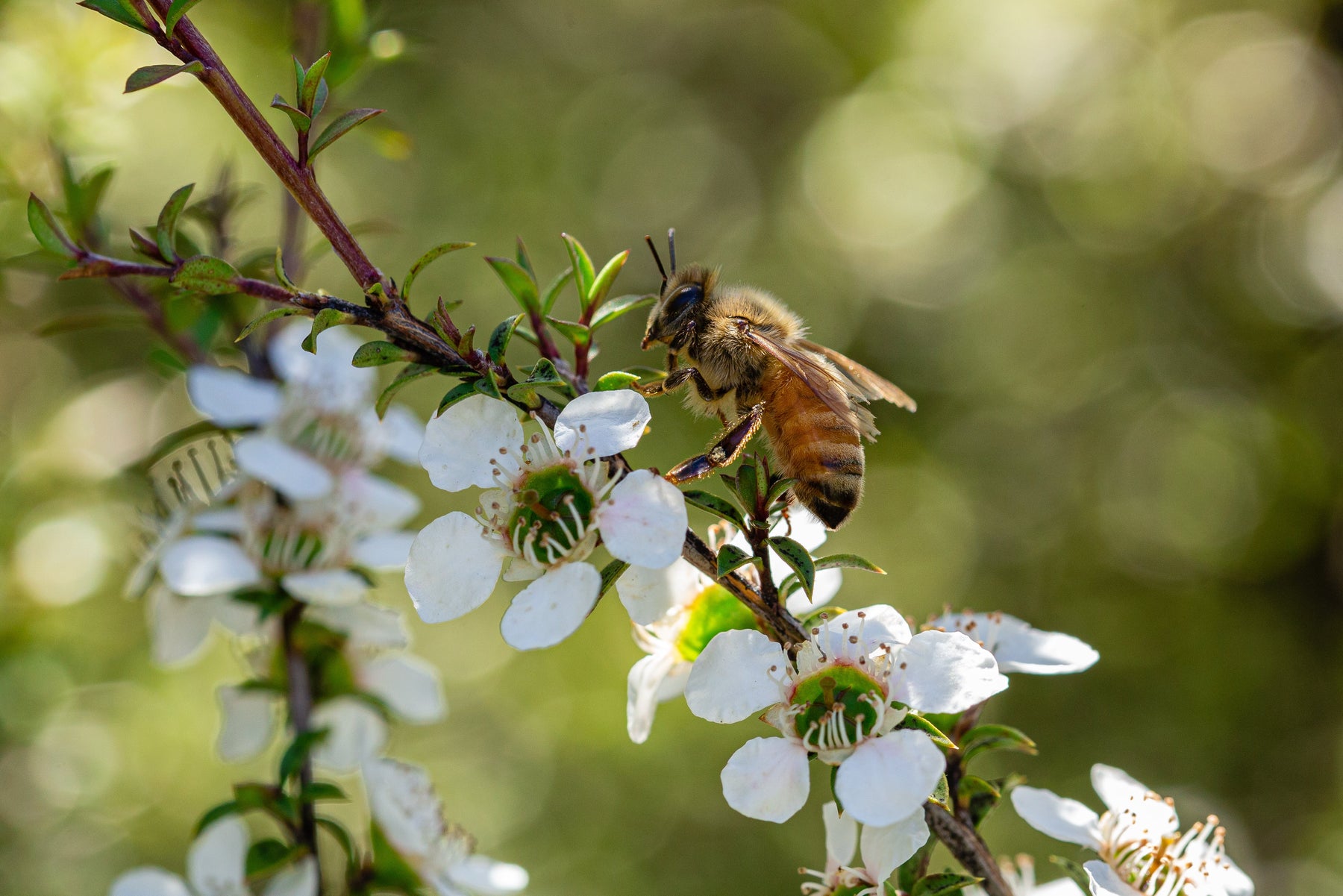

Raw Manuka Honey MGO 850+ - 500g
Our 850+ MGO Raw Mānuka Honey delivers bold, bright energy with serious Mānuka strength. Harvested from the untouched hills of New Zealand, wher...
View full details
June is a very special month for those of us in the world of honey. Why so? Well, because Pollinator Week is recognized in the month of June. This year, Pollinator Week will be recognized June 17 - 24, 2024, and it’s an important week, indeed!
Pollinator Week is recognized internationally, with a shared goal of highlighting the importance of our pollinators and encouraging the protection of them. Pollinator week was first celebrated in 2007 after the U.S. Senate unanimously approved the special week.
In order to truly protect our pollinators, we all need to do our part. Individuals and businesses alike can join hands in this effort. Protecting our pollinators is in humans’ best interest, too!
Pollinators are Friends, and Humans Depend on Them!
Pollinators include bees, butterflies, moths and other insects. As pollinators visit flowers looking for nectar and pollen, which is what they eat, they pass pollen from flower to flower. The pollen is used by plants to reproduce - something that many plants cannot do without pollinators. To put this in perspective, we depend on pollinators for crops such as berries, vegetables, chocolate and coffee. Yes, you read that right. You can thank our pollinators for your morning cup of joe!
We depend on pollinators much more than you may realize. According to the U.S. Department of Agriculture, 75 percent of the world’s flowering plants and about 35 percent of the world’s food crops depend on pollinators to reproduce. In other words - pollinators help the world go round’ and help ensure that the crops we stock our fridges with continue to grow.
Wedderspoon is Proud to Support Pollinators
We are proud to be a partner of the Rodale Institute. The Rodale institute is a non-profit 501(c) (3) organization dedicated to pioneering organic farming through research and outreach. Through our partnership with the Rodale Institute, we support the “Your 2 Cents Program,” uniting producers, consumers, researchers and educators to launch the next generation of organic farmers. Organic farming is one way that pollinators are supported and protected. Pesticides are a leading cause of the decline of bees and other pollinators.
Wedderspoon and Gaia Herbs are also proud to support the Healthy Soil Supporter Program at Rodale. As the Rodale Institute says, “healthy soil is that which allows plants to grow to their maximum productivity without disease or pests and without need for off-farm supplements.” The Rodale Institute’s team of scientists regularly collect and sample soil from their fields and have found that healthy soil holds more water and contains more minerals and nutrients, benefitting plants. Healthy soil is essential to the global food system and the health of our pollinators, who depend on plants for food. The health of pollinators is important to us, as a producer of Manuka Honey, and also to Gaia Herbs, as a producer of herbal supplements. Gaia Herbs produces healing herbal teas, extracts and supplements, all of which are plant-powered.
Join us in Supporting and Protecting Pollinators
We are proud to support our pollinators through our production processes and through local partnerships. We harvest our Manuka Honey in New Zealand, where our team of honey bees forage free-range style on naturally growing Manuka blossoms - all a natural part of Mother Nature. When it’s time to harvest the Manuka Honey, the health and wellbeing of our bees and colonies are a top priority. You can read more about our Manuka Honey harvesting process here.
But, we all need to join hands to support and protect our pollinators. Here are some everyday ways you can support pollinators:
From the team at Wedderspoon, Happy Pollinator Week!


Our 850+ MGO Raw Mānuka Honey delivers bold, bright energy with serious Mānuka strength. Harvested from the untouched hills of New Zealand, wher...
View full details

The first organically certified Manuka Honey (in the U.S.)! In the remote, pristine landscape of New Zealand's South Island, honeybees are hard ...
View full details

Made exclusively by bees that feast on the nectar of New Zealand’s wild Manuka flowers, our raw Manuka honey is one of Mother Earth’s rarest gifts....
View full details

Our Organic Mānuka Honey Drops are made to bring comforting relief when life gets scratchy. Crafted in small batches in New Zealand, they combine g...
View full details

These honey pops are a delicious, feel-good treat made for the whole family. Crafted with Organic Mānuka Honey and Vitamin C, they’re free from art...
View full details
 Sold out
Sold out
Try all three types of our delicious Wedderspoon Manuka Honey Drops, which are all organic-certified, gluten-free, dairy-free, nut-free, and GMO-fr...
View full details